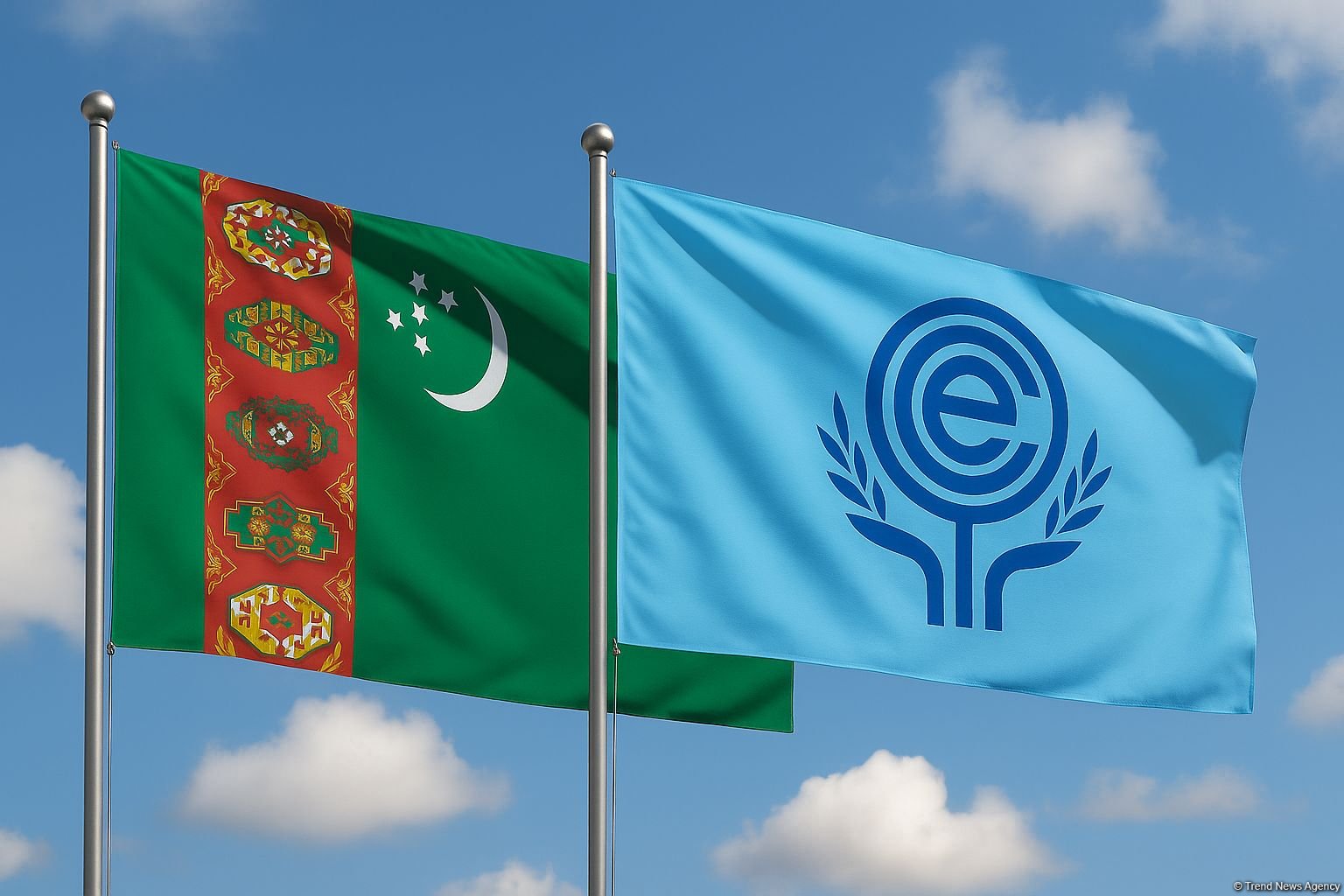BAKU, Azerbaijan, July 4. At today’s Economic Cooperation Organization (ECO) Summit, held in Khankendi, special attention is being paid to how member states are shaping their regional strategies.
For Turkmenistan, the summit presents an opportunity to reaffirm its role within ECO’s transport and energy frameworks.
As ECO Secretary General Asad Majid Khan stated in an interview with Trend, Turkmenistan plays a proactive role within ECO, particularly in advancing regional connectivity, sustainable energy, and the development of cross-border trade mechanisms.
“ECO is working to turn these proposals into practical mechanisms through institutional structures such as working groups, technical committees, and ministerial platforms,” he said.
Turkmenistan maintains consistent engagement with ECO institutions. Its participation focuses on existing energy and transport routes. The country’s leadership has repeatedly emphasized the importance of regional connectivity through active involvement in ECO initiatives.
In 2025, over 2 million tons of cargo transited through Turkmenistan via several corridors, including those connected with ECO.
Trade promotion is facilitated by the Chamber of Commerce and Industry of Turkmenistan, which regularly participates in ECO business forums. Several Turkmen companies operate active trade platforms and maintain bilingual communication: Türkmenhimiýa, Türkmen Gaz, Türkmennebit, Turkmen Demirýollary, and the Turkmenbashi International Seaport. Exports are dominated by natural gas, petrochemicals, and textiles, while imports primarily include machinery, food products, and consumer goods.
At the annual ECO Council of Foreign Ministers in September 2024, Turkmenistan’s Foreign Minister Rashid Meredov stated that the country is ready to expand exports of natural gas and electricity to ECO member states. This offer reflects Turkmenistan’s national capacity, as the country produces over 70 billion cubic meters of gas annually, with around 40 billion cubic meters available for export.
Despite ongoing infrastructure challenges, Turkmenistan continues to actively expand its energy cooperation with ECO member states. Gas deliveries to Iran, though subject to fluctuations due to technical and financial factors, reflect the mutual commitment to maintaining energy dialogue and partnership. The TAPI pipeline project, for which the Turkmen section has already been successfully completed, represents significant potential for regional integration. This strategic route, led by the national company Turkmengaz, may in the future significantly enhance energy connectivity between South and Central Asia. Turkmenistan consistently reaffirms its readiness to serve as a reliable supplier, emphasizing the importance of cooperation with neighboring countries, particularly Iran and Afghanistan, for the implementation of cross-border infrastructure.
Transport is one of ECO’s most active areas, and Turkmenistan participates in several initiatives with parallel coordination.
As ECO Secretary General Asad Majid Khan noted, mechanisms such as the ECO Transit Transport Framework Agreement (TTFA) enable member states to cooperate on infrastructure development, customs simplification, and the implementation of key regional corridors, including the Istanbul–Tehran–Islamabad (ITI), Kazakhstan–Turkmenistan–Iran, and Tajikistan–Uzbekistan–Turkmenistan–Iran–Türkiye (TUTIT) railway routes. “These initiatives aim to reduce trade costs, improve competitiveness, and enhance regional mobility,” he said.
Moreover, the Kazakhstan–Turkmenistan–Iran railway, launched in 2014, has become a vital component of the region’s transit architecture and has strengthened connectivity among ECO member states. The 917.5-kilometer route significantly expands logistics capacity from Central Asia to the Middle East and Türkiye. While cargo traffic is largely governed by bilateral agreements, this highlights the flexibility of the format and the ability of states to adapt cooperation to economic realities. The Lapis Lazuli transport corridor, developed by Turkmenistan in cooperation with Afghanistan, Azerbaijan, Georgia, and Türkiye, aligns well with ECO’s transportation goals. Originating from a concept first proposed within the ECO framework, it demonstrates how country-led initiatives can successfully evolve both within and alongside multilateral structures.
The 17th ECO Summit opens an important window of opportunity for Turkmenistan to strengthen its dialogue with multilateral ECO initiatives and to promote a pragmatic, cooperation-driven approach in the energy sector. Even with moderate participation, the country can demonstrate strategic vision and reaffirm its readiness to deepen engagement. The potential for closer integration depends on the consistent implementation of institutional and economic steps that can enhance Turkmenistan’s role as a constructive and reliable partner within the ECO framework.







